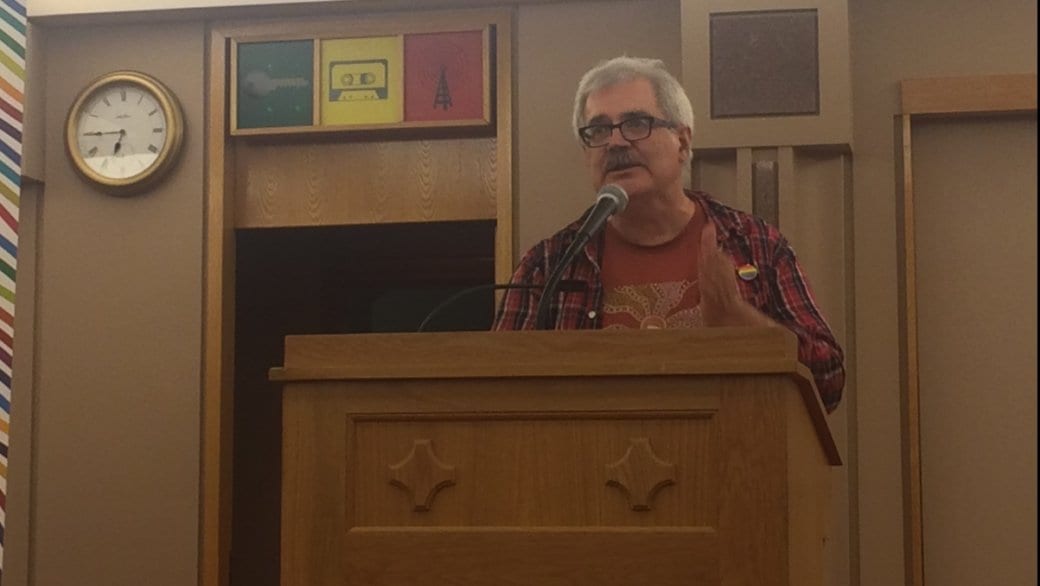The federal government must look beyond a “white, middle-class and mostly cis-male elite” when addressing LGBT issues, activists and academics told parliamentarians at a recent panel.
On Oct 25, 2016, the Canadian Centre for Gender and Sexual Diversity hosted an hour-long panel on Parliament Hill about issues faced by gender and sexual minorities in Canada.
Long-time activist Gary Kinsman recounted the first major gay-rights demonstration on the Hill in 1971, which was under RCMP surveillance. Since then, Kinsman said LGBT organizations have overwhelmingly benefited wealthy gay men.
“The rights that we have won — which have been really important — have helped some LGBT people far more than others,” he said.
The panel started with two-spirit activist Sharp Dopler, who urged parliamentarians to remember the intersectional challenges faced by indigenous queer people. While some thrive, many live on reserves that have taken on European views of binary gender roles.
“We have been colonized so well, that sometimes we’re the colonizer,” she said, noting that internal despair is compounded by housing and health crises. “We have children in some of our communities committing suicide as young as 10 years old.”
Trans author and performer Ivan Coyote recounted a childhood where adults made little room for their lived experience.
“I am not trapped in the wrong body,” Coyote said. “I’m trapped in a world that makes very little space for bodies like mine. I live in a world where public washrooms are a battleground.”
Coyote hopes legislation like trans-rights Bill C-16 will make public services and schools more welcoming. “Sometimes it is a simple as removing a sign on a door, and putting up a new sign,” they said.
Dan Irving, a Carleton University professor who studies human rights and sexuality, said his interviews with scores of gender-nonconforming people show rampant employment and housing discrimination.
“The lives of so many trans people are being eroded; they’re being hollowed out to the extent that mere survival is a challenge.”
Kenneth Jeffers, who coordinates the Toronto District School Board’s gender-based violence prevention strategy, said that more Canadians are encountering gender diversity in the media and in their daily lives, but lack guidance on how to accommodate people and prevent discrimination before it happens.
As the federal government moves towards pardoning people convicted of homosexuality, Kinsman said it needs to include queer people pushed out of the military, people who left the public service before they were questioned, and those charged in bathhouse raids. “The commitments from the government right now are incredibly vague, and we need action now.”
Ryan Peck, executive director of the HIV & AIDS Legal Clinic of Ontario, said polling shows most Canadians also carry stigmatizing views of the country’s 75,000 HIV-positive people.
“Canada remains a world leader in prosecuting people with HIV,” Peck said, noting that courts give heavy sentences for exposing someone to HIV, regardless of whether it was intended, or if they actually transmitted the disease. “It provides a disincentive for people to get tested in the first place.”
The event, hosted by Senator Mobina Jaffer, was attended by Liberal members of Parliament Hedy Fry, Kent Hehr, Rob Oliphant and NDP MPs Sheri Benson, Randall Garrison and Peter Julian, as well as various staff for other parliamentarians.

 Why you can trust Xtra
Why you can trust Xtra


